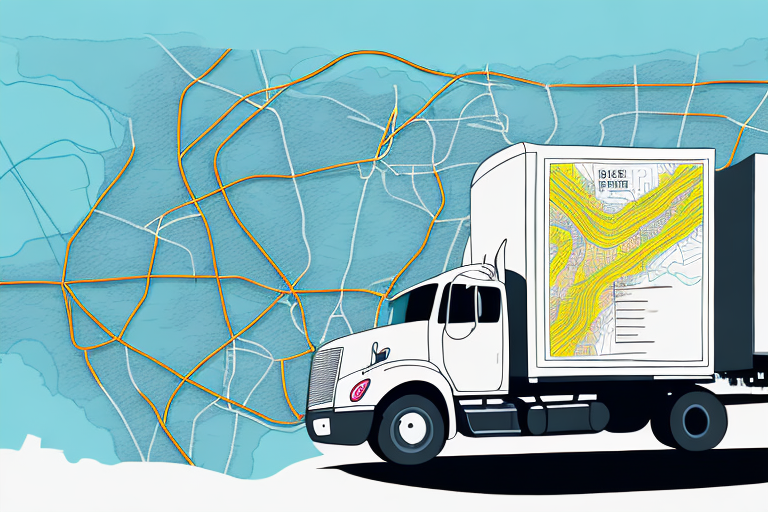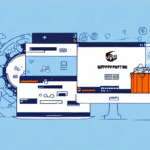Understanding Uber Freight
Uber Freight, an extension of the well-known ride-hailing company Uber, has made significant strides in the shipping industry since its launch in 2017. This digital freight brokerage platform connects shippers with carriers, streamlining the transportation of goods across the United States and beyond. In this article, we delve into the workings of Uber Freight, its unique advantages, and how businesses can leverage the platform to optimize their shipping operations.
Overview of Uber Freight
Uber Freight operates as a digital marketplace, facilitating seamless connections between businesses that need to ship goods and carriers that transport them. By leveraging technology, Uber Freight aims to reduce the complexities traditionally associated with freight logistics, offering a more efficient and transparent shipping process.
How Uber Freight Differs from Uber Ridesharing
While Uber Ridesharing focuses on connecting passengers with drivers for short-distance travel within cities, Uber Freight is tailored for long-haul transportation of goods. Unlike personal vehicles used in ridesharing, Uber Freight relies on commercial trucks equipped to handle various types of cargo. Additionally, the platform incorporates features specific to freight logistics, such as real-time tracking and load matching based on carriers' preferences and availability.
Benefits of Using Uber Freight
Benefits for Shippers
- Reliable Carrier Network: Access to a vast network of pre-approved carriers ensures that shipments are handled by trustworthy professionals.
- Real-Time Tracking: Enhanced visibility into shipment status allows shippers to monitor progress and anticipate delivery times accurately.
- Cost Efficiency: Transparent pricing models enable shippers to compare rates and select the most cost-effective options for their shipping needs.
Benefits for Carriers
- Consistent Loads: Carriers can find and secure loads quickly, ensuring their trucks remain on the road and reducing downtime.
- Instant Payment: Uber Freight offers expedited payment processing, allowing carriers to receive payments within days of completing deliveries.
- Flexible Scheduling: The platform's user-friendly interface enables carriers to manage their schedules efficiently, selecting loads that best fit their routes and preferences.
Getting Started with Uber Freight
Registration and Setup
To begin using Uber Freight, both shippers and carriers must create an account on the Uber Freight website or through the mobile app. During registration, carriers are required to provide necessary documentation, such as commercial licenses and insurance, to ensure compliance and reliability within the network.
Managing Shipments
Once registered, shippers can post their shipping requirements, including details like cargo type, weight, and delivery timelines. Carriers can then browse available loads and accept those that align with their operational capacities. The platform facilitates seamless communication between parties, allowing for adjustments and updates as needed.
Technology and Features of Uber Freight
Load Matching and Real-Time Pricing
Uber Freight utilizes advanced algorithms to match shippers with the most suitable carriers based on various factors such as location, cargo type, and carrier preferences. This ensures optimal load distribution and efficient use of resources. Additionally, real-time pricing provides immediate quotes, allowing shippers to make informed decisions quickly.
Real-Time Tracking
Integration with GPS technology enables real-time tracking of shipments, offering both shippers and carriers up-to-date information on the location and status of goods in transit. This feature enhances transparency and helps in proactive management of any potential delays.
Analytics and Data Insights
Uber Freight's platform includes a comprehensive analytics dashboard that provides valuable insights into shipping operations. Shippers can analyze delivery times, carrier performance, and overall shipping costs, enabling them to refine their logistics strategies for greater efficiency. [Source: Forbes Tech Council]
Pricing Model
How Uber Freight Determines Pricing
Uber Freight employs a transparent pricing model that factors in distance, cargo type, weight, and current market demand. Dynamic pricing algorithms adjust rates in real-time to reflect these variables, ensuring that both shippers and carriers receive fair and competitive rates.
Transparent Pricing
Unlike traditional freight brokers who often require negotiations, Uber Freight provides upfront pricing information. Shippers are aware of the costs associated with their shipments before confirming, reducing uncertainty and facilitating better budget management. [Source: U.S. Department of Transportation]
Best Practices and Challenges
Best Practices for Shippers and Carriers
- Accurate Documentation: Ensure all shipment details are accurately recorded to prevent misunderstandings and delays.
- Effective Communication: Maintain open lines of communication between shippers and carriers to address any issues promptly.
- Regular Tracking: Utilize real-time tracking features to monitor shipments and make informed decisions in case of unexpected changes.
Common Challenges on the Platform
- Payment Processing Delays: Although Uber Freight offers expedited payments, occasional delays can still occur, affecting carriers' cash flow.
- Scheduling Conflicts: Coordinating pickup and delivery times can sometimes lead to scheduling challenges, especially during peak periods.
- Pricing Fluctuations: Dynamic pricing, while beneficial for transparency, can lead to unexpected cost changes for shippers.
Impact and Future of Uber Freight
Disruption of Traditional Trucking
Uber Freight has significantly disrupted the traditional trucking industry by introducing a digital-first approach. By eliminating middlemen and automating many aspects of freight logistics, the platform has increased efficiency and reduced costs for both shippers and carriers. According to a Statista report, the adoption of digital freight solutions like Uber Freight is projected to grow by 20% annually over the next five years.
Future Developments and Expansion Plans
Looking ahead, Uber Freight plans to expand its services internationally, broadening its reach and accommodating global shipping needs. Additionally, the company is exploring the integration of autonomous trucking technology to further enhance efficiency and reduce operational costs. Partnerships with other logistics and technology firms are also on the horizon, aiming to offer comprehensive supply chain solutions. [Source: Business Insider]
User Experiences
Testimonials from Shippers and Carriers
Many users of Uber Freight have reported positive experiences, highlighting the platform's efficiency and reliability. Shippers appreciate the ease of finding and booking carriers, while carriers value the consistent workload and prompt payments. One shipper stated, "Since switching to Uber Freight, our shipping costs have decreased by 15%, and our delivery times have improved significantly." Similarly, a carrier remarked, "Uber Freight's app makes it easy to find loads that fit our schedule, minimizing empty miles and maximizing our earnings."
Comparing Uber Freight to Other Digital Load Boards
While the digital freight marketplace is populated with several platforms, Uber Freight distinguishes itself through its advanced technology, comprehensive features, and commitment to transparency. Compared to other load boards, Uber Freight offers superior real-time tracking, instant pricing, and a user-friendly interface that caters to both shippers and carriers. This makes it a preferred choice for businesses seeking a reliable and efficient freight solution. [Source: Capterra]
In conclusion, Uber Freight has transformed the freight logistics landscape by providing a digital platform that enhances connectivity, transparency, and efficiency for shippers and carriers alike. By leveraging its robust technology and user-centric features, businesses can optimize their shipping operations, reduce costs, and improve overall supply chain management.
Additionally, Uber Freight's focus on sustainability through route optimization and reduction of empty miles contributes to a greener logistics industry. Embracing such innovative solutions not only benefits businesses financially but also supports environmental stewardship, paving the way for a more sustainable future in freight transportation.




















